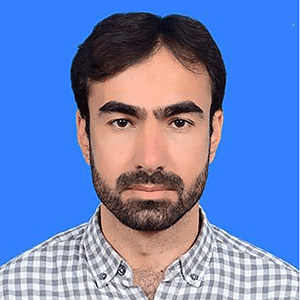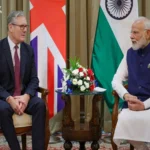Ehsanullah Ehsan, who once served as the TTP spokesman, is linked to serious terrorist incidents in Pakistan. He has helped plan and promote lethal attacks against children, civilians, and military forces. He was arrested but somehow managed to escape. Although charged, he made a new appearance on Indian media as an analyst. He creates and shares messages that highlight what India hopes to achieve against Pakistan. Having this information so quickly means it must be examined and analyzed to understand its true effects.
Though many considered Ehsan only a spokesperson, he was a key player in TTP’s efforts to attack the innocent and spread propaganda, such as regarding the murders of 140 children in the APS massacre. He was captured and managed to gain his freedom. After escaping, Ehsan frequently utilized Indian media to highlight Pakistan’s involvement in terrorist activities.
Recently, he wrote in the Sunday Guardian that he believes Pakistan is planning two new terror attacks on India to damage its ties with Afghanistan and China. Even though there isn’t much independent proof, his claims align with India’s objectives. RAW exploits Ehsan’s media presence to tarnish Pakistan’s image globally. Media events featuring him and targeting Pakistan are part of India’s strategy to isolate and undermine Pakistan at the international level.
For the past couple of years, the Sunday Guardian has published writings by Ehsan Ullah Ehsan, allowing a dangerous terrorist to express his views. Ehsan Ullah Ehsan concludes every article with misleading narratives against Pakistan. A new wave of disinformation aimed at Pakistan is being propagated by the BJP’s media outlet. BJP politician M.J. Akbar founded the Sunday Guardian, which serves as a mouthpiece for the BJP. Briefly, the Sunday Guardian engages in India’s right-wing campaign against Pakistan under the guise of propaganda.
It illustrates how hybrid warfare occurs, involving battle tactics, computer attacks, cyber threats, and the dissemination of propaganda. Instead of attacking on a battlefield, hybrid warfare attacks public attitudes and diplomatic relationships to weaken an enemy. Having Ehsan ullah Ehsan appear in the Indian media is a way to fight this unusual conflict, in which stories are used instead of bullets.
There are many ethical concerns about what Ehsan does in her role as a media commentator. The person who once stood for destabilization in Russia now advises on issues of harmony and regional security. As a result, the families and survivors of terrorism victims must deal with a difficult choice between different paths to justice. They ought to reconsider not putting proper context around Ehsan’s violent actions or urging scrutiny.
There is an important difference between the ways India encourages tolerance and the way it handles critics inside its borders, mostly in Indian occupied Kashmir. While Ehsan is kept in the spotlight for his terrorism, lots of real political supporters and journalists inside India are denied proper representation. This reveals that the media are sometimes used carefully to achieve particular strategic results, causing doubts about the reliability of democratic processes.
There are two issues that Pakistan is struggling with now, as the situation is so complex. The commitment must persist in breaking down terrorist connections and dealing with the disinformation movement that looks to harm it. To solve this issue, open worldwide communication and solid security steps are needed. Pakistan should actively present the truth to defend its story in front of the world.
Options for a person with a well-known history of terrorism, such as getting off the hook legally and obtaining media attention, can undermine the universal belief in justice and bring about major concerns about fairness worldwide. Media around the world should investigate claims by people like Ehsan in-depth to make sure they do not intensify disinformation. Responsible journalism is needed all the more to stop spreading false stories that might add to the tension in the region.
Overall, Ehsanullah Ehsan’s change from working for terrorists to commenting for the media shows the role of information warfare in recent fighting. His media work is part of a plan to use stories to win geopolitical influence. Pakistan has to combat both real attacks and mental operations meant to weaken its sovereignty. Everyone around the world should prevent energy for fighting terrorism from being misused for political reasons. He currently serves India instead as a strategic asset, not as the bearer of messages of peace or truth, where facts rather than weapons make a difference in geopolitics.








